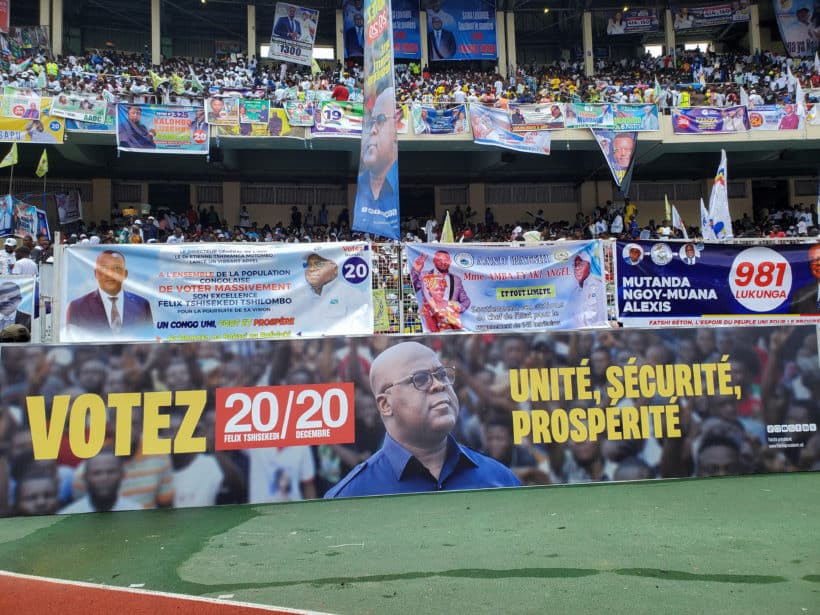
Dec 8 (Reuters) – Voters in Democratic Republic of Congo go to the polls on Dec. 20 and international investors are keenly watching to see if a political shake-up occurs in one of the world’s top suppliers of critical minerals.
A win for President Felix Tshisekedi would likely mean a continuation of his goal to lure more foreign investment and renegotiate contracts to improve terms for Congo.
Tshisekedi’s opponents include mining magnate Moise Katumbi and former oil executive Martin Fayulu whose business backgrounds they both say will help them clean up Congo’s corruption-plagued extractive industries if they win.
MINES & MINERALS
Congo is the world’s biggest producer of cobalt, a key component in batteries for electric cars and mobile phones. It is also the world’s third-largest copper producer and holds significant deposits of lithium, tin, tungsten, tantalum and gold.
The Congolese mining sector, particularly its copper and cobalt mines, is now largely dominated by Chinese companies, but Tshisekedi has tried to woo other foreign investors and renegotiate existing deals to improve Congo’s stake in major projects.
“A Tshisekedi victory would provide a degree of policy continuity for investors in the mining sector, albeit of a resource nationalist nature,” said Aleix Montana, Africa Analyst at risk intelligence company Verisk Maplecroft.
Whoever wins will have to take the lead on ongoing talks with China including on the new terms for the Sicomines joint venture, part of a $6 billion metals-for-infrastructure deal from 2008.
“Tshisekedi in a new term would have stronger legs to stand on in terms of the negotiating position,” said Indigo Ellis, managing director at consultancy Africa Matters Ltd (AML).
With Tshisekedi’s backing, state mining group Gecamines has also said it plans to renegotiate some terms on its joint venture contracts with partners including Glencore GLEN.L and Chinese investors in a push to buy copper and cobalt proportional to its stakes.
OIL & GAS
Tshisekedi has tried to develop Congo’s largely untapped fossil fuel reserves by auctioning the rights to 30 oil and gas blocks – many of them in environmentally sensitive areas.
The sale was officially launched in July 2022, but the auctions have been plagued by delays with only the licensing round for the three gas blocks completed so far albeit with the notable absence of major foreign players.
The government says Congo has 22 billion barrels of crude reserves and it is targeting production of 200,000 barrels per day, which would make Congo one of Africa’s biggest oil producers. The timeline for the development of the blocks remains unclear.
RISKY BUSINESS
Tshisekedi came to power with the promise to root out endemic corruption. Many Western investors have continued to steer clear, but analysts say that may change in the coming years as global powers seek access to minerals needed to drive the clean energy transition.
“The race … is forcing Western miners to re-evaluate their risk appetite, said Montana from Verisk Maplecroft, which rates Congo seventh worst globally on its index that assesses the risk of governments seizing more control of revenue from the extractives sector.
Nevertheless many investors are waiting to see that elections go peacefully and the transfer to the next term is smooth. The last election in 2018 was the first transfer of power at the ballot box after decades marked by coups and civil conflict.
“It makes sense for them (investors) to wait and see what happens,” said AML’s Ellis.
(Reporting by Felix Njinji; Writing by Alessandra Prentice; editing by David Evans)

